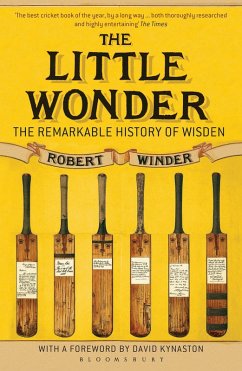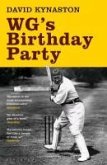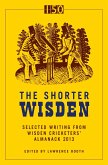John Wisden, at his peak known as 'The Little Wonder', was a key member of the England cricket team who in 1859 sailed across the Atlantic on the world's first overseas cricket tour. In 1864, after his retirement, Wisden published the first edition of the book that would make his name immortal. He printed 'full and accurate scores' along with indispensable facts about the Derby, the St Leger, the university rowing matches 'and other Interesting Information', including potted histories of the Wars of the Roses. The 1864 edition is now valued at anything up to £25,000, and Wisden Cricketers' Almanack has been published continuously ever since - not for nothing is it known as 'the cricketer's bible'.
The Almanack has, despite some close shaves, never missed a year. In 1937 it was just 48 hours from liquidation, and in the Second World War a German bomber set fire to the company's headquarters, destroying its records. And yet somehow, the yellow (since 1938) book has retained its antique, rugged character. It is a labour-of-love collection of records for cricket obsessives, but also a hearty eccentric. It loves to count the number of wides in a season, but also delights in relating tales from far-flung pavilions.
Through the telling of Wisden's story, we also glimpse the history of English, and world, cricket. The book is a window onto the game's most charismatic characters, its high points, lows and political storms. In The Little Wonder Robert Winder traces the central role the game has played in national life for so long. The book's 150th anniversary in 2013 is the ideal time to tell the extraordinary story of Wisden's - and cricket's - journey from Victorian times to the modern world. New every year, it feels as though it has been with us for ever.
The Almanack has, despite some close shaves, never missed a year. In 1937 it was just 48 hours from liquidation, and in the Second World War a German bomber set fire to the company's headquarters, destroying its records. And yet somehow, the yellow (since 1938) book has retained its antique, rugged character. It is a labour-of-love collection of records for cricket obsessives, but also a hearty eccentric. It loves to count the number of wides in a season, but also delights in relating tales from far-flung pavilions.
Through the telling of Wisden's story, we also glimpse the history of English, and world, cricket. The book is a window onto the game's most charismatic characters, its high points, lows and political storms. In The Little Wonder Robert Winder traces the central role the game has played in national life for so long. The book's 150th anniversary in 2013 is the ideal time to tell the extraordinary story of Wisden's - and cricket's - journey from Victorian times to the modern world. New every year, it feels as though it has been with us for ever.









